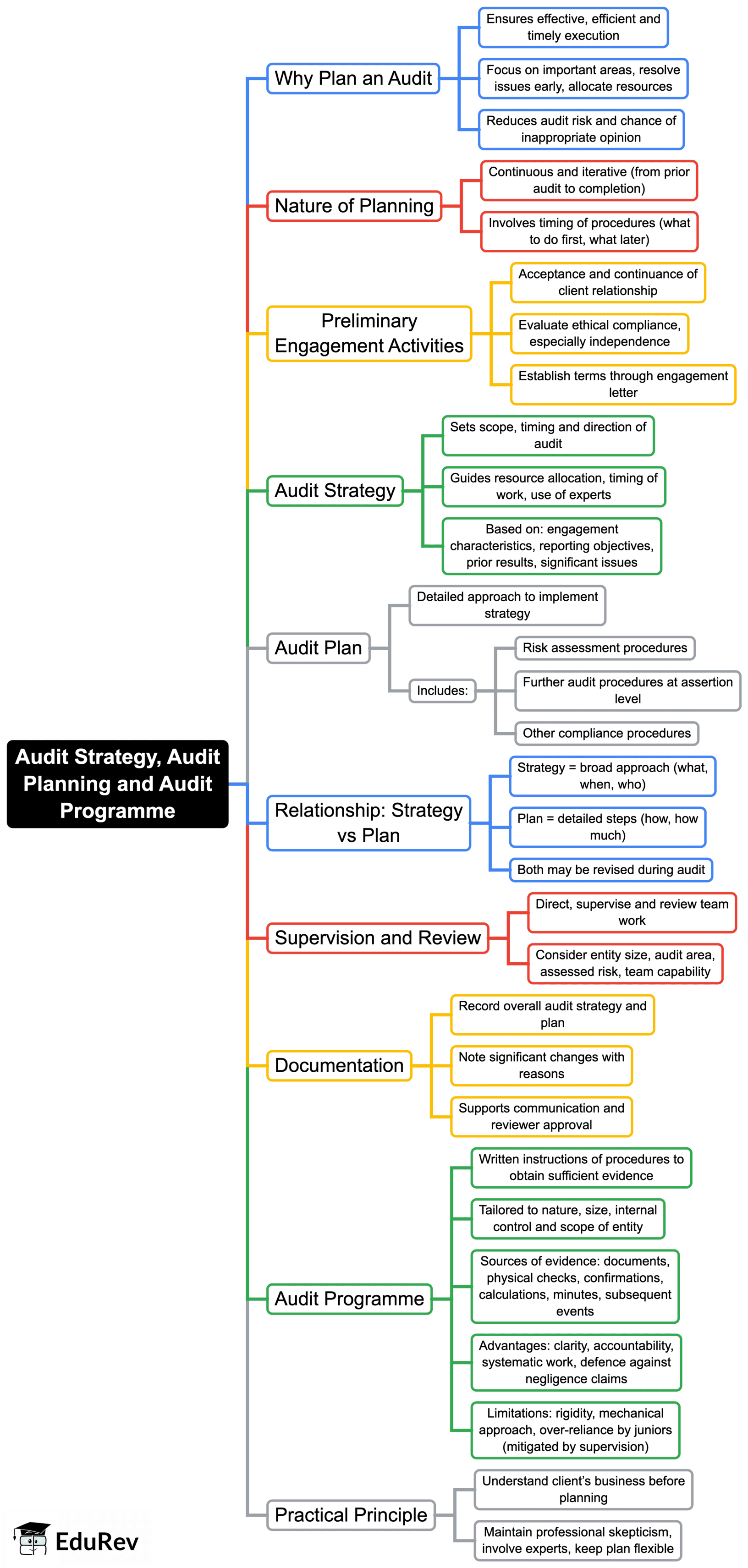CA Intermediate Exam > CA Intermediate Notes > Auditing and Ethics for CA Intermediate > Mindmap: Audit Strategy, Audit Planning and Audit Programme
Mindmap: Audit Strategy, Audit Planning and Audit Programme | Auditing and Ethics for CA Intermediate PDF Download

The document Mindmap: Audit Strategy, Audit Planning and Audit Programme | Auditing and Ethics for CA Intermediate is a part of the CA Intermediate Course Auditing and Ethics for CA Intermediate.
All you need of CA Intermediate at this link: CA Intermediate
|
60 videos|95 docs
|
FAQs on Mindmap: Audit Strategy, Audit Planning and Audit Programme - Auditing and Ethics for CA Intermediate
| 1. What is the significance of an audit strategy in the audit process? |  |
Ans. An audit strategy outlines the overall approach and direction for the audit. It helps auditors determine the scope, objectives, and resources needed for the audit. A well-defined audit strategy ensures that the audit is efficient and effective, allowing auditors to focus on high-risk areas and enhance the quality of their findings.
| 2. How does audit planning differ from the audit programme? |  |
Ans. Audit planning involves outlining the audit's objectives, scope, and methodology, including assessing risks and determining resource allocation. The audit programme, on the other hand, is a detailed plan that specifies the procedures and tests to be performed during the audit. While planning sets the framework, the programme provides the specifics for execution.
| 3. What are the key components of an effective audit programme? |  |
Ans. An effective audit programme typically includes: 1) objectives of the audit, 2) specific audit procedures and tests to be conducted, 3) timelines for each phase of the audit, 4) allocation of responsibilities among team members, and 5) documentation requirements to ensure compliance and facilitate review.
| 4. Why is risk assessment important in audit planning? |  |
Ans. Risk assessment is crucial in audit planning as it helps identify areas with potential significant risks that could affect the financial statements. By understanding these risks, auditors can design targeted procedures to address them, thereby enhancing the effectiveness of the audit and ensuring that resources are allocated efficiently.
| 5. What role does communication play in audit strategy and planning? |  |
Ans. Communication is vital in audit strategy and planning as it ensures that all stakeholders, including the audit team and management, are aligned on the audit objectives and expectations. Clear communication fosters collaboration, allows for addressing concerns proactively, and enhances the overall effectiveness of the audit process.
Related Searches















